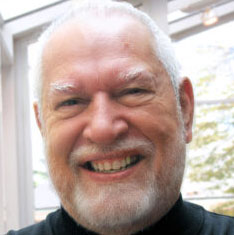For the last episode of 2023, TWiV describes how ancient chicken remains reveal the increase of fitness and virulence of Marek’s disease virus, and the diversity and dissemination of Leishmania virus in the pathogenic protozoan Leishmania braziliensis.
In his weekly clinical update, Dr. Griffin discusses the outcomes of SARS-CoV-2, influenza and respiratory syncytial virus infection in pediatric communities under the age of 18 years, the treatment of infants with the human monoclonal anti-respiratory syncytial virus antibody to prevent hospitalizations, most recent statistics on the circulation of respiratory syncytial virus, influenza virus and SARS-CoV-2 virus in the US, how the SARS-CoV-2/COVID-19 pandemic affected school attendance and child healthcare, how exposure length influenced transmission of SARS-CoV-2, how the durability of the anti-SARS-CoV-2 antibody response to protect against virus re-infection, if administration of oral antiviral therapy affected viral rebound in either the unvaccinated or vaccinated populations, as well as a reminder of the ineffectiveness of antibiotics for treating COVID-19 and the effect of vaccination on post-COVID conditions in children between 5-17 years old.
TWiV explains a study showing that ost traits shape virome composition and virus transmission in wild bats, rodents, and shrews, and development of a gB nanoparticle vaccine that elicits a protective neutralizing antibody response against Epstein-Barr virus.
In his weekly clinical update Dr. Griffin discusses the annual economic burden of respiratory syncytial virus in adults in the US, recombinant or standard-dose influenza vaccine in adults under 65 years of age, maternal vaccine effectiveness against influenza-associated hospitalizations and emergency department visits in iInfants, influenza positive tests reported to CDC by US clinical laboratories, update on COVID-19, risk of severe maternal morbidity associated with SARS-CoV-2 infection during pregnancy, COVID-19 rapid antigen tests with self-collected vs health care worker–collected nasal and throat swab specimens, optimal timing of nirmatrelvir/ritonavir treatment after COVID-19 symptom onset or diagnosis: target trial emulation, long-term outcomes following hospital admission for COVID-19 versus seasonal influenza: a cohort study, and risk of arrhythmias following COVID-19: nationwide self-controlled case series and matched cohort study.
Vincent visits the Max Planck Institute for Medical Research in Heidelberg, Germany to speak with Matthias Fischer about his career and his research on giant viruses, virophages, and their protist hosts.
In his weekly clinical update, Dr. Griffin discusses monkeypox and chickenpox co-infection in southern Nigeria, vaccine effectiveness against influenza A, SARS-CoV-2 neutralizing antibody titers in maternal blood, umbilical cord blood, and breast milk, COVID-19 rapid antigen tests with self-collected vs health care worker–collected nasal and throat swab specimens, four methods for monitoring SARS-CoV-2 and Influenza A virus activity in schools, efficacy and safety of Baricitinib for the treatment of hospitalized adults with COVID-19, a synbiotic preparation (SIM01) for post-acute COVID-19 syndrome in Hong Kong, consistent absence of cerebrospinal fluid biomarker abnormalities in patients with neurocognitive post-COVID complications, and risk of new-onset long COVID following reinfection with SARS-CoV-2.
From the European Society for Clinical Virology meeting in Milan, Vincent speaks with Eeva Broberg about her career and her work at the European Centre for Disease Prevention and Control.
In his weekly clinical update, Dr. Griffin discusses developmental impairment in children exposed during pregnancy to maternal SARS-COV2, vagus nerve dysfunction in the post-COVID-19 condition, and humoral immunity to an endemic coronavirus is associated with postacute sequelae of COVID-19 in individuals with rheumatic diseases, incidence and burden of long COVID in Africa.
On this all-bacteriophage episode, TWiV explains the ‘vampire phage’, and and how mammalian cells internalize phage particles and utilize them to enhance cell growth and survival.
In his weekly clinical update, Dr. Griffin discusses a microbiologist who was harassed during COVID pandemic sues university, use of inactivated poliovirus vaccine for poliovirus outbreak response, safety and immunogenicity of bivalent rsvpref vaccine coadministered with seasonal inactivated influenza vaccine in older adults, coffee as a dietary strategy to prevent SARS-CoV-2 infection, enrollment of pediatric patients in COVID-19 interventional trials, vaccination, immunity, and the changing impact of COVID-19 on infant health, COVID-19 vaccine effectiveness against post- COVID -19 condition among 589722 individuals in Sweden, repeated Omicron exposures override ancestral SARS-CoV-2 immune imprinting, protection conferred by COVID-19 vaccination, prior SARS-CoV-2 infection, or hybrid immunity against Omicron-associated severe outcomes among community-dwelling adults, the Novavax heterologous COVID booster demonstrates lower reactogenicity than mRNA vaccines, T cell responses to SARS-CoV-2 infection and vaccination are elevated in B cell deficiency and reduce risk of severe COVID-19, oral VV116 versus placebo in patients with mild-to-moderate COVID-19 in China, and how COVID-19 convalescent plasma therapy decreases inflammatory cytokines, therapeutic heparin in non-ICU patients hospitalized for COVID-19 in the ACTIV-4a trial.





